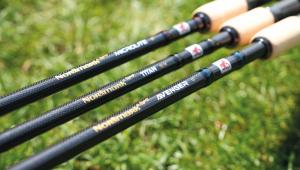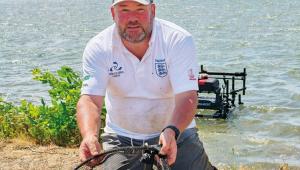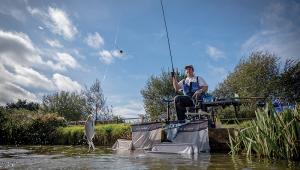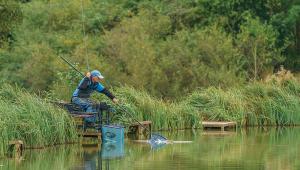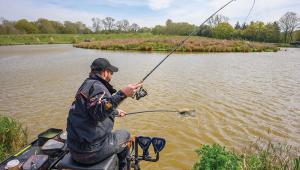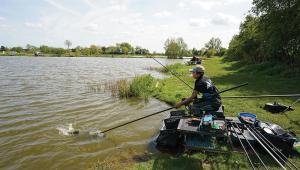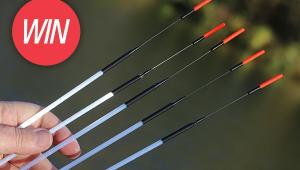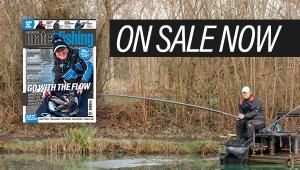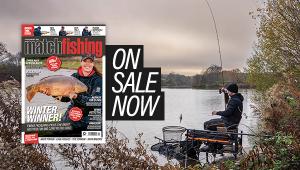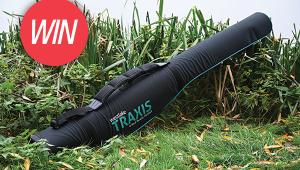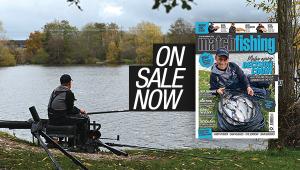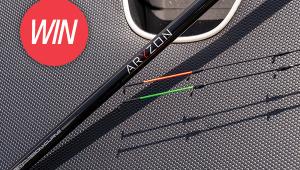Learn By Practice
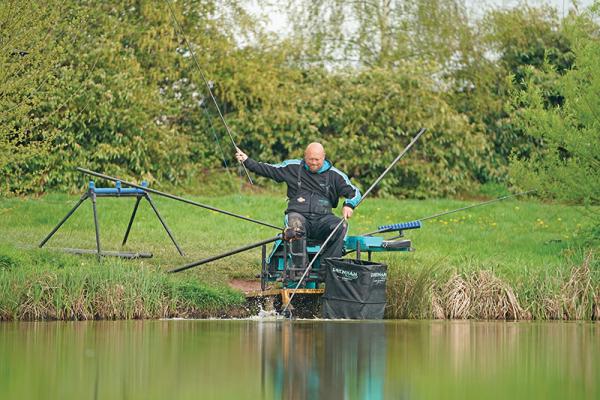
It is said that practice makes perfect and that if you fail to prepare you prepare to fail.
This is especially pertinent in these days as match fishing has gone from the days of a few lads fishing open matches or the Kamasan – for those you that can remember that far back! – to where we are these days, where all the big matches offer the kind of payouts you only see on TV gameshows!
When it comes to fishing these events – Fish ‘O’ Mania, Match This and the Golden Rod and Reel etc. – competing in important qualifiers has almost become a full-time job. Along with the number of qualifiers you need to fish in, there are the matches themselves, all of which offer life-changing prize pots for many of the competitors. So, you need to take things very seriously, if you are to have any chance of competing.
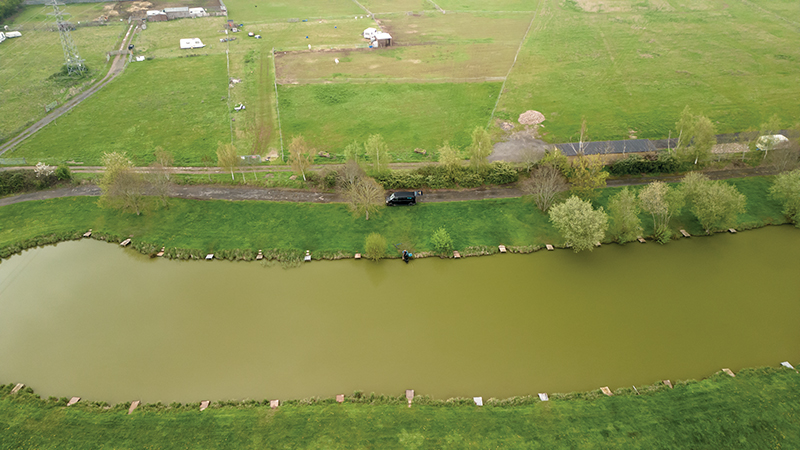 As a lifelong angler, with a huge string of big wins behind me, I am now the owner of Moorlands Farm near Kidderminster. This has allowed me to see both sides of the coin and so I am uniquely placed to speak about just how important practising can be.
As a lifelong angler, with a huge string of big wins behind me, I am now the owner of Moorlands Farm near Kidderminster. This has allowed me to see both sides of the coin and so I am uniquely placed to speak about just how important practising can be.
What Is The Value Of Practising?
For me, practising is massive.
If you are heading for a big qualifier or even the final, you need to practise to get your head around how the venue ticks and, more importantly, what doesn’t work.
Today is just a pleasure session, so obviously things will change on match day. But, if I had never fished this venue or fished it very rarely, it is a chance for me to get ‘in tune’ with the place.
The time you can spend practising is vital as allows you to cover all bases on the big day. To give you an example, we have a thriving youth league here at Moorlands and I have a young lad coming for the final in a few weeks. He recently rang me to ask me what I would do on the day. And to be fair, it’s not just him that does this, loads do, but the point is that it doesn’t matter what I would do, it is what you can do.
If I gave him the information regarding how I would fish the match and it fails then he blames me, but more importantly he isn’t me, so he will fish totally differently to how I fish. So, the information I give him will probably not play to his strengths, but mine. This is what we call practising on the cheap, trying to replicate another’s approach, but not your own.
A practice day also gives you the time to experiment. You can try different tactics, rigs, loose feed, hook baits etc., which will all combine to make you a more rounded angler on the day.
Yes, of course, on the day of the match, the conditions will undoubtedly be completely different, but those prior sessions have enabled you to get into the mindset of the venue. 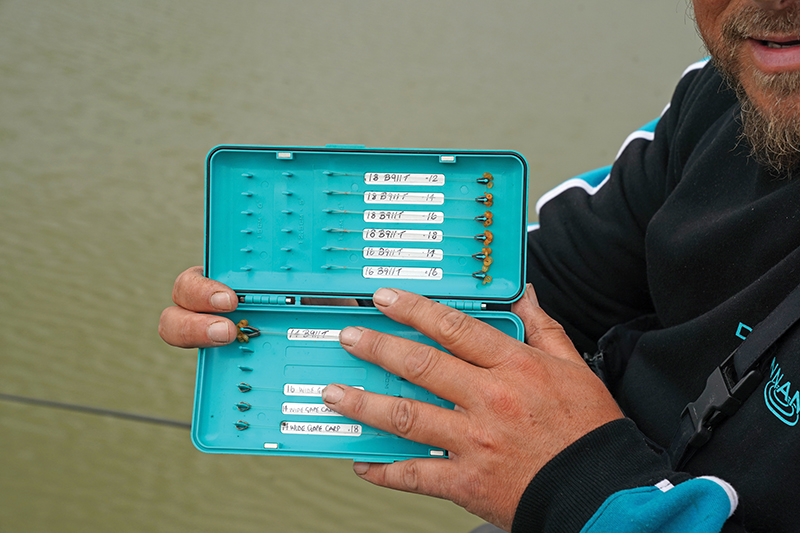 To just turn up ‘cold’ on the day of a big-money match qualifier/final takes a lot. I think you need to practise, so you can get into the mood to help quell the big day’s nerves. You only have one chance as the winner takes all, and there are very rarely any prizes for second. Plus, who remembers who came second in the years to come anyway?
To just turn up ‘cold’ on the day of a big-money match qualifier/final takes a lot. I think you need to practise, so you can get into the mood to help quell the big day’s nerves. You only have one chance as the winner takes all, and there are very rarely any prizes for second. Plus, who remembers who came second in the years to come anyway?
The other thing is that especially if you’ve not fished the venue in a long while, it could have wholly changed over that time. When you last fished there, it could have been all carp, but now there’s been a big stocking of F1s or even silver fish. So, if you are not prepared for these fish – baits and rig-wise for example – you are already way behind the rest of the field that know the venue much better than you do.
Basically, don’t wholly rely on others telling you. Get out there and find out for yourself. There are no short cuts to gaining experience I’m afraid.
The Value Of Homework…
Homework is very useful, but it will only take you so far. You need to get as much information prior to the event or qualifier as you can and that information needs to be relevant and up to date – it is no use looking at match results from two months ago!
Going back to the young lad, he fishes at Lindholme a lot. This is three hours or more away from here, so Moorlands Farm isn’t a place he has fished very often. Therefore, doing a little homework prior to the match is vital to success. Compared to any lads that fish here day to day, he’s already behind and the boys haven’t even drawn yet!
When I talk about homework, this is where ringing me comes in, as well as recent match results, the internet and friends’ networks etc. But, you then need to match this information back to your strengths.
If a lot of matches are being won with caster shallow or meat fishing and this is something you never or rarely do, you need to either practise it, or have an alternative that you are good at, that will compete.
Don’t fish the match, come nowhere and play the ‘woe is me’ card, because you fished the wrong tactics because it was easier. You need to cover the bases and put in the hard yards.
Being from Lindholme, this lad has probably never fished meat, as it is banned there, so go somewhere where it isn’t banned – if you can’t get to the venue where the big match is going to be – and learn how to do it. 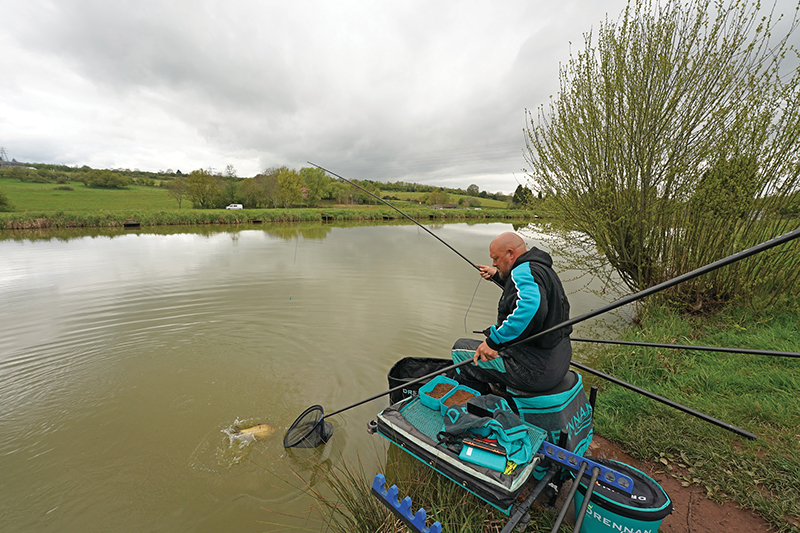
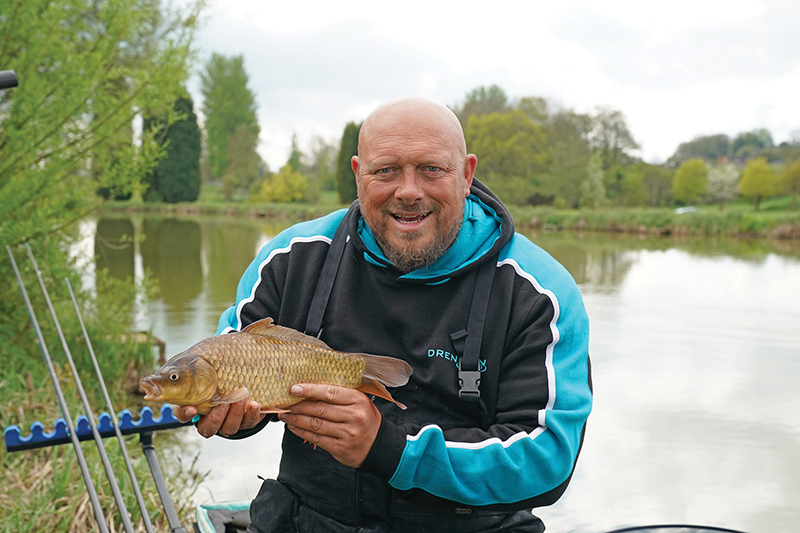 There is a very famous quote from a great and very successful golfer called Gary Player. A journalist once said to him: “You seem to be a very lucky golfer, Mr Player.”
There is a very famous quote from a great and very successful golfer called Gary Player. A journalist once said to him: “You seem to be a very lucky golfer, Mr Player.”
You which Gary replied: “Yes, and the more I practise, the luckier I seem to get!”
Basically, once you have this knowledge, you can start preparing the things you are probably going to need. For any finals/qualifiers I’ve been involved in, I have been known to prep for weeks ahead. For a big five-hour match, I reckon it pays to put in at least five times that time in prior preparation.
How To Practise – Open Match Or Pleasure Fishing?
Both have their place, but first and foremost I would start off fishing a few open matches on the venue itself. Not only do you see and experience the venue under match conditions, but you are fishing against the regulars. As well as seeing how they fish, you can talk to them or even watch what they do. These are all vital parts of that final jigsaw.
This said, it is also worth pleasure fishing too, as venues change hugely in both scenarios. When pleasure fishing, I find it is a time to estimate how quickly you can play the fish, what lines you can get away with, the type of hook bait and loose feed that is working well. This means I can start the big match at “maximum power’, whereas if I hadn’t taken the time to practise, I might start on 0.14mm and lose the first two fish, rather than going straight in on 0.18mm. Something as small as this could lose me a section or even the win.
Of course, all of this information is far from black and white and you will need to look carefully at how the day’s gone and what it has taught you about how the venue responds to various approaches, both in match conditions and during pleasure days.
What Tactics Should You Practise?
This all harks back to homework and what you have pieced together so far. If you’re not good at a certain tactic, but it catches well on the venue, you need to practise it until it becomes second nature. Take a place like Barston, for example. This is a big water that responds well to big chucks, so you need to practise your long casting.
Regardless of what you do well or poorly, it is important to practise the tactic that is going to win you the match. There is no point using a technique that will win you a section or one that you do really well. This is where fishing open matches play their part. 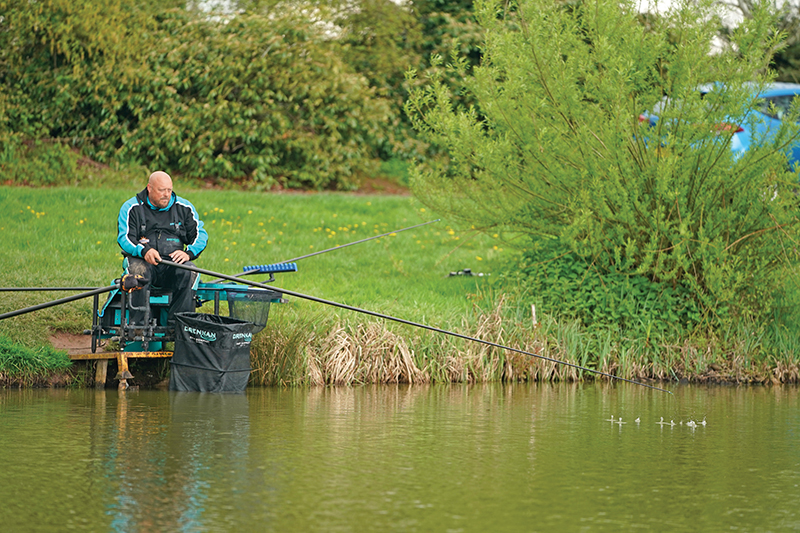
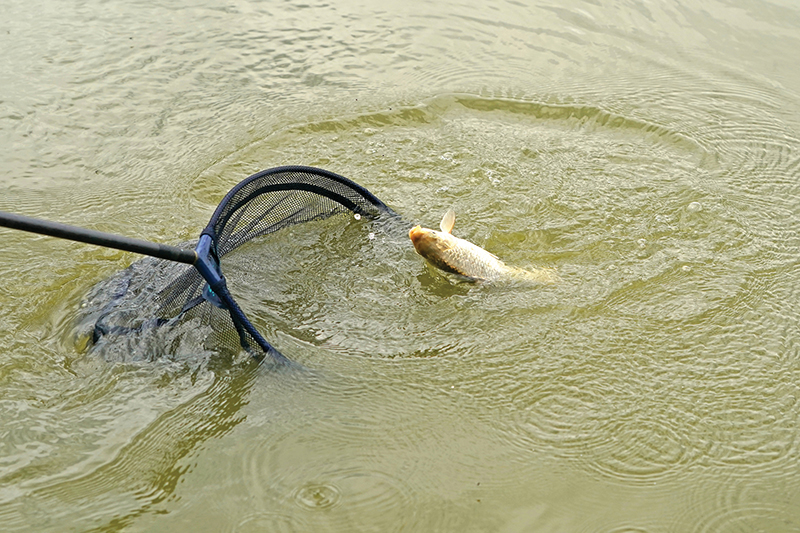 You can see how your usual tactics, or the tactic you think will work fares under match conditions. If you are there or there abouts, that’s great, but if you get battered in say three matches, fishing hard pellet sand everyone else if fishing meat, there’s only on conclusion to draw from this!
You can see how your usual tactics, or the tactic you think will work fares under match conditions. If you are there or there abouts, that’s great, but if you get battered in say three matches, fishing hard pellet sand everyone else if fishing meat, there’s only on conclusion to draw from this!
It is also no good coming along to Moorlands Farm and watching how I fish and then trying to copy me wholly as at the end of the day, you’re not me. I, like all anglers, do things that I don’t even think about, it is just those little things that experience has taught us over the years.
You can see what I do and then draw it into your style of angling, but don’t try to ‘parrot’ a successful angler as you will always fall short in the long run as they will undoubtably do it better than you as they have done it for years. As I said earlier, it is all about putting the pieces of the jigsaw together for that big day win!
Swim Management…
Managing your swim correctly is extremely important. Practising will allow you to judge when and where bites will come from. It also allows you to simplify your approach too, and you are better able to hone your skills.
Today I have 4mm hard pellets, meat and micros as I know this works well at this time of year, so there is no need for boxes and boxes full of dead maggots, casters, corn etc. It just adds to the confusion on the day. It’s one less variable I need to think about as I have practised my approach. All I need to do now is think about how to fish and how I can catch those fish faster. 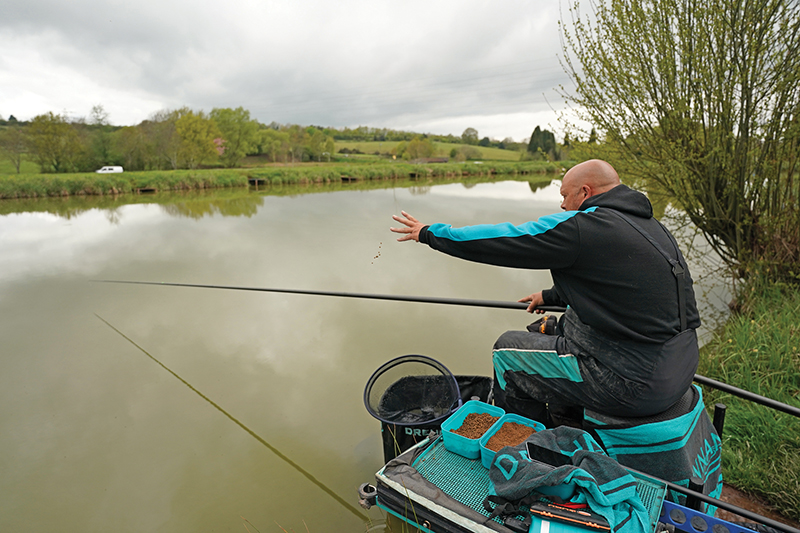 Ideally, I tend to start long, but look to get the fish feeding in closer and shallower as the day goes on. It is a very mercenary outlook, but match fishing is all about weight and who has the most when the whistle goes. So, the more effectively and the faster you can catch, the beter you will do at the end of the day. This all comes down to good swim management, all of which you learn during those ever-useful practice sessions.
Ideally, I tend to start long, but look to get the fish feeding in closer and shallower as the day goes on. It is a very mercenary outlook, but match fishing is all about weight and who has the most when the whistle goes. So, the more effectively and the faster you can catch, the beter you will do at the end of the day. This all comes down to good swim management, all of which you learn during those ever-useful practice sessions.
How To Draw Conclusions...
Having practised for a few days or weeks, you should now have all the information you need. But all this data now needs to be processed. The way to do this is to think through the sessions logically and a plan will naturally form. This will be even better if you are practising with one or more friends as you can combine your learnings. After all, it is said that the whole is always greater than the sum of its parts.
This plan may be something as simple as priming a close-in swim before starting long. Then coming on to the short line after two hours, prior to going into the margins in the last hour. This is greatly simplified, but then all the best plans are.
In conclusion to this piece, I’d like return to the analogy I have used a few times that match fishing practice is like doing a complicated jigsaw. Like a jigsaw, you must first get the four corners in place, prior to making the frame, which then allows you to fill in the middle until the puzzle is completed. None of these steps can be completed correctly if you fail to complete the former first.
Yes, practising is hard work and very time-consuming, but I reckon it is a vital part of successful match angling. On that note, I will leave you with this thought… no one ever fell to the top of a mountain, did they!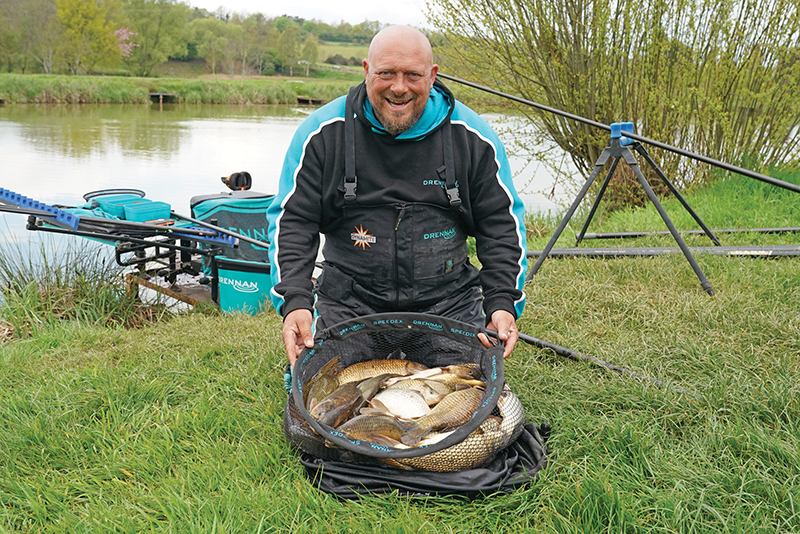
- Log in or register to post comments
